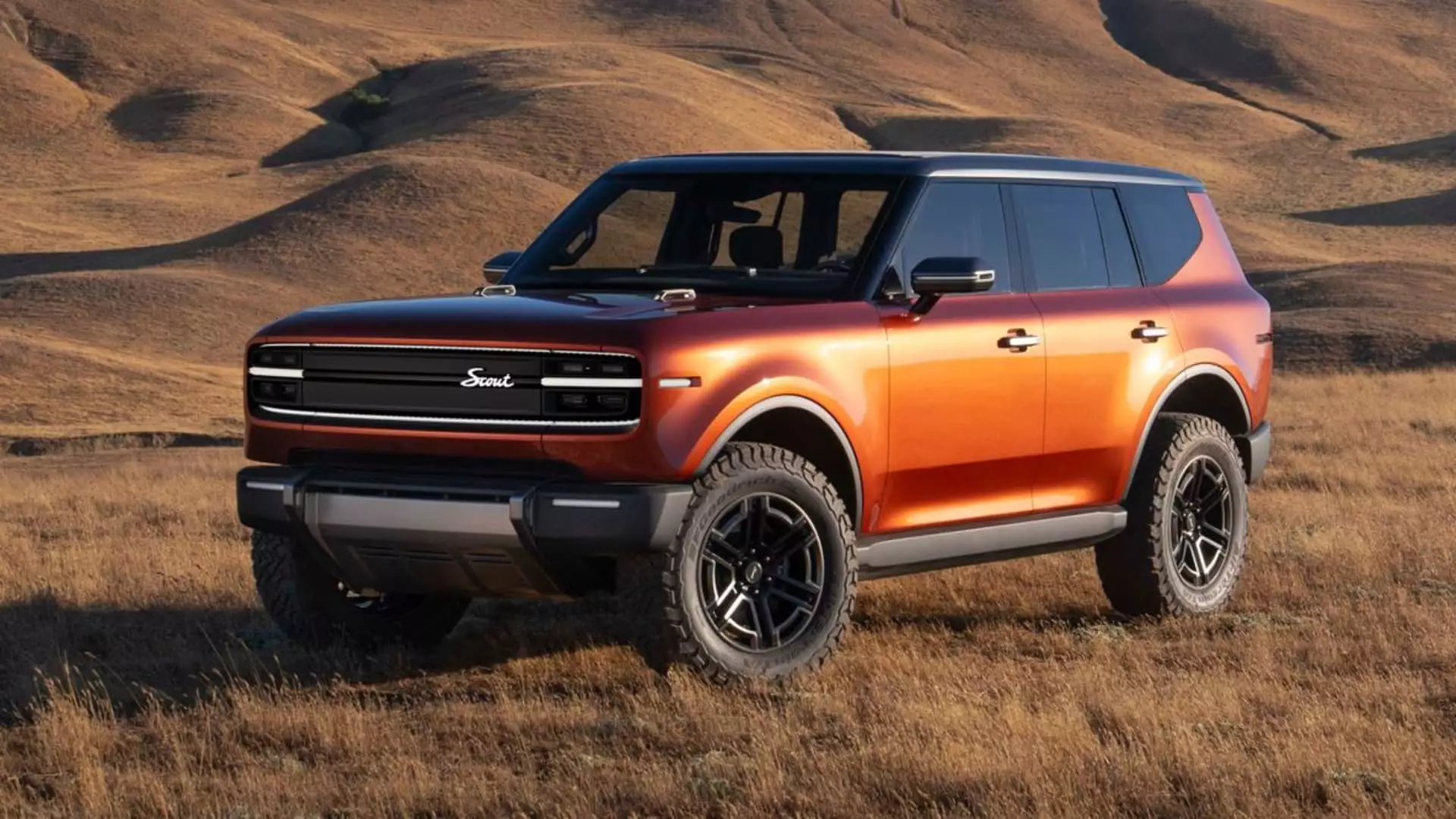In an intriguing move that bridges the gap between past and future, Scout Motors has stepped onto the automotive stage, backed by Volkswagen, announcing the unveiling of its inaugural electric vehicle offerings. This brand revival of a name long revered between 1961 and 1980 signals not just nostalgia but a calculated pivot in response to the electric vehicle (EV) market dynamics. Initially conceived to provide an extensive range of EVs, the company has diversified its upcoming lineup to incorporate Extended-Range Electric Vehicles (EREVs), illustrating a strategy that recognizes the wavering pace of EV adoption among consumers.
CEO Scott Keogh articulated this shift aptly, describing the flexibility inherent in a startup’s operations as crucial to safeguarding the brand against fluctuating market conditions. Keogh’s previous experience leading Volkswagen’s U.S. operations lends credibility to this strategic adjustment, underscoring a proactive approach to evolving market demands.
The introduction of EREVs into Scout’s plans signifies a significant tactical decision. EREVs utilize electric motors alongside a traditional internal combustion engine, which serves a dual purpose by either charging the electric components when needed or providing additional power when the batteries run low. This system effectively acts as a safety net, ensuring continued functionality in a landscape where charging infrastructure and consumer readiness for fully electric vehicles remain inconsistent.
Keogh emphasized that this approach introduces potential customers to electrification while still accommodating their concerns about range anxiety and infrastructure limitations, ultimately easing the transition towards full electrification. A noteworthy point made by Keogh is the decision to completely steer clear of traditional internal combustion engines in Scout’s offerings, a firm declaration in today’s rapidly changing automotive ecosystem.
Scout Motors’ dual vehicle strategy, featuring a full-size pickup and a large SUV, represents a direct aim at a highly profitable market segment. According to Keogh, these two vehicle classes constitute a substantial portion of U.S. automotive sales profits—signals of a keen understanding of market dynamics. They also reflect the immense potential that still exists in the realm of electric pickups, an area where many industry giants, including Ford and GM, are fiercely competing.
The establishment of a new $2 billion manufacturing plant in South Carolina, projected to yield 200,000 vehicles annually, is indicative of Scout’s ambitious scale intentions. Moreover, the company aims for operational profitability within a year of starting vehicle production, a benchmark that bodes well given the current struggles faced by established companies like Rivian and Lucid, which have experienced steep financial losses.
Breaking from convention, Scout intends to market its vehicles directly to consumers, circumventing traditional dealership networks. This approach not only enhances customer experience but also increases profitability by streamlining sales channels. The company revealed its first concepts, the Traveler SUV and Terra pickup, targeted for release in 2027, with prices expected to hover between $50,000 and $60,000.
The emphasis on higher-quality materials and technology integration is evident in the anticipated interior designs, featuring spacious, horizontally oriented digital surfaces that modern consumers have come to expect. Furthermore, the incorporation of advanced battery technology sourced from VW’s Canadian joint venture emphasizes Scout’s commitment to maintaining a competitive edge in the EV market.
While Scout Motors’ entry into the electric vehicle landscape is certainly ambitious, the road ahead is fraught with challenges. The brand must differentiate itself in a market saturated with competition, including established names and newer startups. Keogh’s projections that the Traveler SUV will account for the bulk of initial sales are ambitious, and the company must navigate unpredictable consumer behaviors and market trends.
With the EV market still in the nascent stages, Scout has displayed considerable foresight by including EREVs in its lineup, possibly appealing to a broader audience hesitant to embrace fully electric lifestyles immediately. Notably, the company asserts that while the current focus is on larger vehicles, there may also be plans to expand product offerings into smaller vehicles in the future, reflecting adaptability in a fast-evolving industry.
The revival of Scout Motors under the aegis of Volkswagen is met with both excitement and scrutiny. As the company forges ahead, its ability to sustain profitability, embrace technological advancements, and remain agile amidst market shifts will be pivotal in determining its success in the competitive electric vehicle sector.

